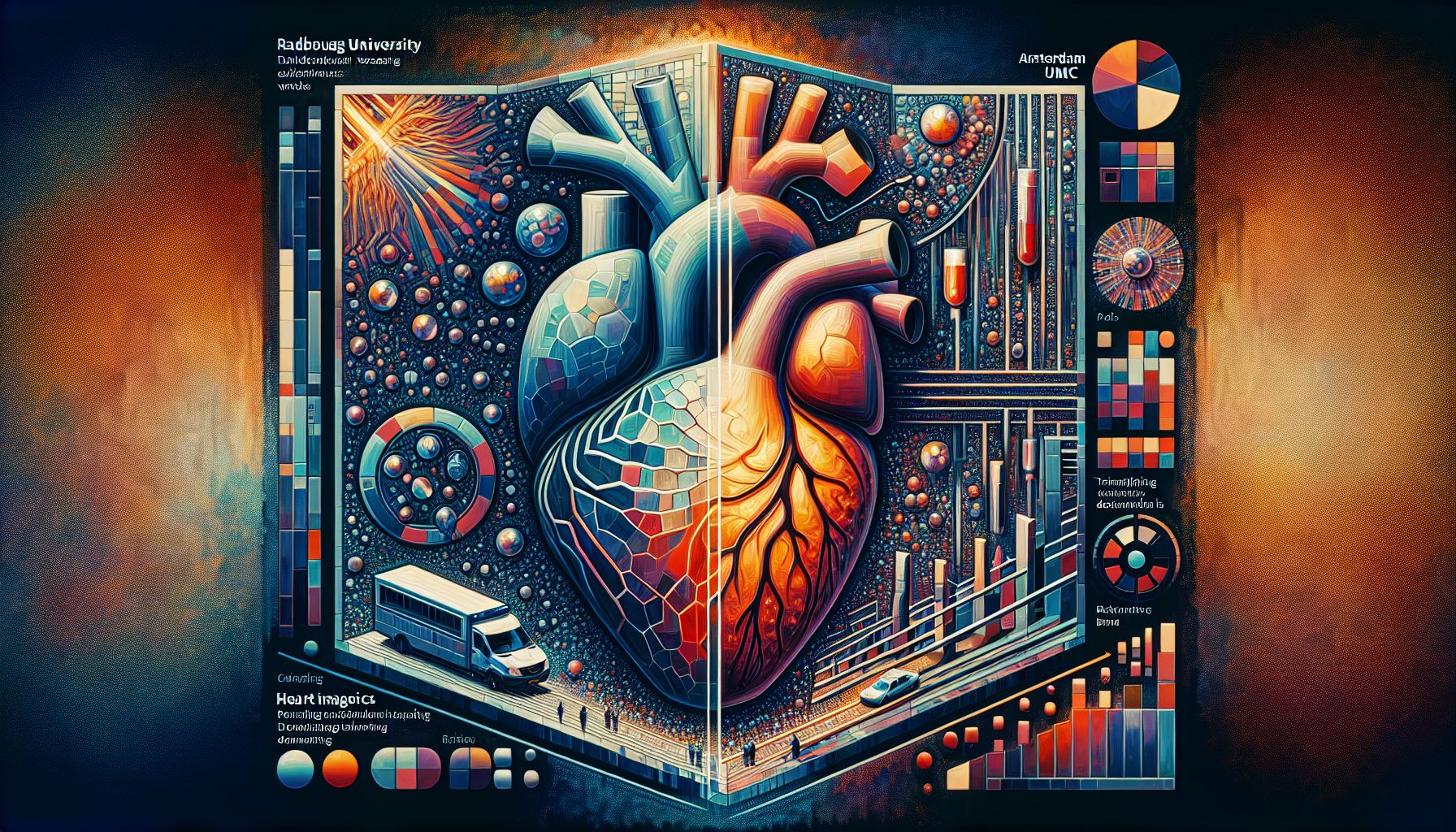Dutch Universities Pioneer AI in Cardiac Imaging

Nijmegen, Friday, 4 October 2024.
Radboud University and Amsterdam UMC are leading groundbreaking research in AI-powered intracoronary imaging. This collaboration aims to enhance medical diagnostics, potentially revolutionizing cardiac care through improved precision and efficiency.
The Cutting-Edge Collaboration
Radboud University, located in Nijmegen, and Amsterdam UMC have embarked on a pioneering journey to integrate artificial intelligence into intracoronary imaging. This collaboration aims to revolutionize cardiac diagnostics by enhancing the precision and efficiency of imaging technologies. By focusing on optical coherence tomography (OCT), a technique that allows high-resolution visualization of coronary arteries, these institutions seek to redefine patient care in cardiology. The initiative is underpinned by a diverse team of researchers within the CARA lab, which includes five PhD candidates and is guided by four professors from both institutions[1][2].
Impact and Potential of AI in Medical Imaging
Artificial intelligence in medical imaging offers numerous benefits, primarily through its ability to process and analyze large datasets with speed and accuracy. In the context of intracoronary imaging, AI algorithms are being developed to enhance OCT’s diagnostic capabilities. This includes improving the detection of coronary artery disease by providing detailed images that help identify blockages and other anomalies. The potential applications of this technology extend beyond mere diagnostics; they could significantly improve the planning and execution of cardiac interventions, ultimately leading to better patient outcomes[1].
Integration with Clinical Practice
The integration of AI into clinical practice is a critical focus for the researchers at Radboud University and Amsterdam UMC. Their work not only involves the development and testing of AI technologies but also their practical application in clinical settings. PhD candidates are actively engaged in applying these innovations within the cardiac catheterization department, bridging the gap between research and real-world medical practice. This hands-on experience is invaluable for both the researchers and the medical professionals involved, fostering a collaborative environment that accelerates the translation of research into tangible clinical benefits[1][2].
Future Directions and Global Implications
As AI technology continues to evolve, its applications in medical imaging are expected to expand significantly. The work being done by Radboud University and Amsterdam UMC is not only positioning them at the forefront of medical innovation in the Netherlands but also contributing to a global shift in how cardiac care is approached. By collaborating with a worldwide network of doctors and researchers, these institutions are ensuring that their advancements have far-reaching impacts, potentially setting new standards in cardiac care and beyond[1].

